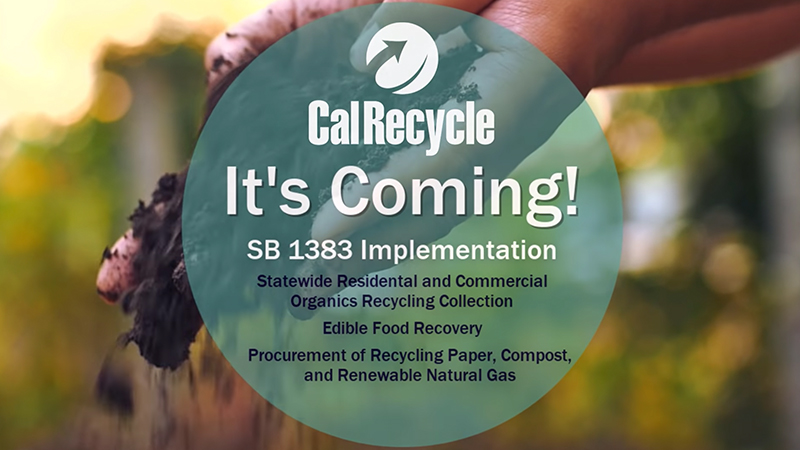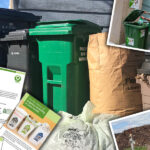The law also requires the state to increase edible food recovery by 20 percent by 2025. SB 1383 establishes a statewide target and not a jurisdiction organic waste recycling target, thus the “regulation requires a more prescriptive approach,” explains CalRecycle, the agency overseeing SB1383 implementation. “CalRecycle must adopt regulations that impose requirements necessary to achieve the statewide targets. This makes the regulation more similar to other environmental quality regulations where regulated entities, i.e., jurisdictions, are required to implement specific actions, rather than achieve unique targets.”
The draft regulations — they are awaiting final approval by the state’s Office of Administrative Law — require that jurisdictions conduct education and outreach on organics recycling to all residents, businesses (including those that generate edible food that can be donated), haulers, solid waste facilities, and local food banks and other food recovery organizations. Even though the SB 1383 regulations don’t go into effect until January 1, 2022, jurisdictions need to start planning now to adequately resource the programs, says CalRecycle, which has made education and outreach tools available. Newly added are eight SB 1383 case studies, compiled by HF&H Consultants under a CalRecycle contract. The case study topics include franchise agreements, enforcement ordinances, edible food, and procurement.
One of the case studies focuses on the City of Stockton, which recently approved two franchise agreements that require mandatory service and include SB 1383 provisions. Under the new agreements, which went into effect on Jan. 1, 2020, the haulers are required to provide universal collection service to residents and businesses, including providing compliant collection containers; conduct route reviews; assist the city with enforcement activities; develop and distribute educational materials; and, provide the city and its residents with recovered organic waste (compost). Lessons learned during these negotiations include:
- When negotiating a contract to include SB 1383-related provisions, require specific per-unit costing metrics (e.g., the cost for conducting 50 contamination monitoring lid flips). Understanding how much it will cost to implement various aspects of SB 1383 may be useful when conveying potential rate impacts to community members and to City Council.
- Determine your overall approach to achieving performance standards and goals. For example, decide whether to penalize the hauler for failing to achieve performance standards or goals — or incentivize the hauler to achieve performance standards or goals. While maybe a combination of both would work best, Stockton chose to use penalties to motivate.
Another case study is on the City of Manteca, which provides collection services for its residents and businesses. To process organics, the city is developing a waste to fuel program involving anaerobic digestion of organics and production of renewable compressed natural gas (R-CNG) for its collection fleet. The R-CNG can support the city’s compliance with SB 1383’s annual recovered organic waste product procurement requirements.













